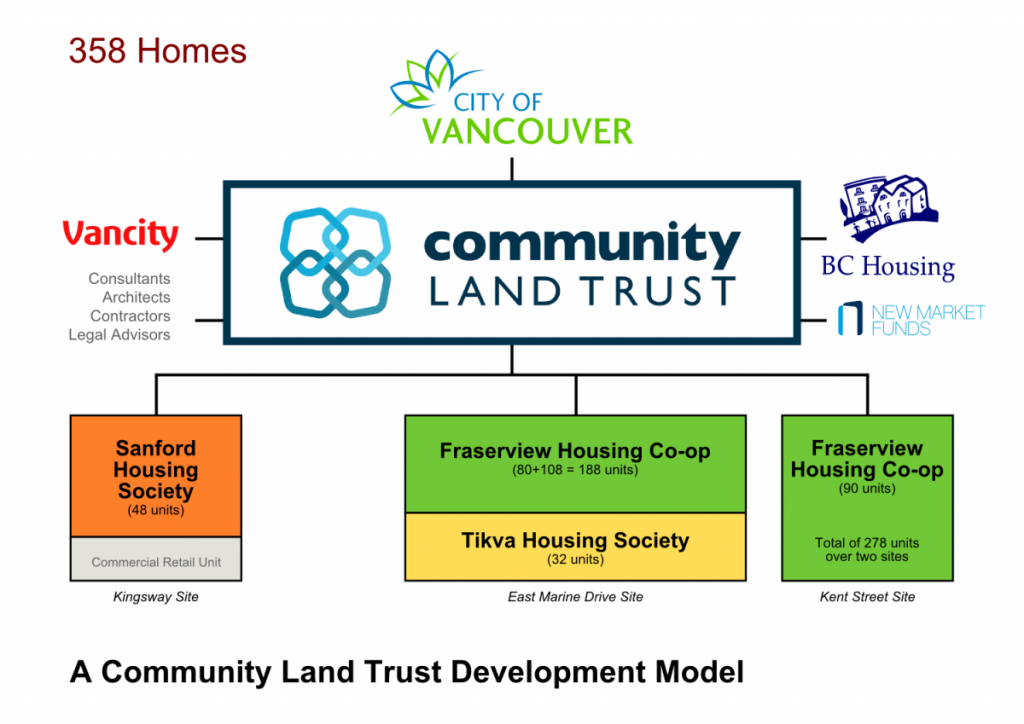Are Community Land Trusts the Key to Affordable Housing?
By TH!NK by IBI
Date
October 25, 2017A growing model of shared housing has recently completed the first building of it’s kind in Vancouver. The City of Vancouver has opened the first of four planned Community Land Trust (CLT) projects, providing 358 new guaranteed affordable housing units in a rapidly escalating real estate market. Once completed, these projects operate as housing co-ops for their residents, but the development project behind the scenes is quite different from a traditional co-op. A CLT either purchases or is given parcels of land that are then held by a non-profit manager for the benefit of the community. In the case of Vancouver, the Community Land Trust Foundation is the “non-profit society serving as the real estate development arm of the Co-operative Housing Federation of BC. [Their] mission is to acquire, create and preserve affordable housing for future generations with a focus on development and redevelopment of co-operative and non-profit housing.” Vancouver’s CLT holds a 99 year ground lease on City of Vancouver properties valued at $25 million dollars.

The organizational structure of Vancouver’s Community Land Trust. Click here for larger image. Image Credit: Co-operative Housing Federation of BC
CLTs are different from other forms of affordable housing because they tend to operate like real-estate developers, but without the pressures of speculation. CLTs are, from the outset, more affordable, especially in expensive cities, because the cost of the land is removed from the cost of the housing. In the case of the Vancouver model, the City and it’s partners have provided the $25 million dollars that would otherwise be needed for the land and passed this forward to those buying or renting the units. Additionally, the non-profit organization that acts as the manager can have a diverse portfolio and leverage their multiple assets to buy new assets and redevelop others. CLTs are flexible to changing community needs and are equipped by their mandate to put the interests of the community first, protecting them in the long term from pricing out low and moderate income residents. The director of the Co-operative Housing Federation says, in the video below,
“The things that make housing co-ops such wonderful, intimate communities are just the things that make it difficult for co-ops to protect their assets over time and to grow. And every housing co-op is a one off housing provider and that makes it very difficult to pool those assets, to leverage them, to either protect what co-ops already have or to expand and grow- and that’s exactly what a land trust can offer.”
Photo by Sasha&Dasha Bakani on Unsplash







